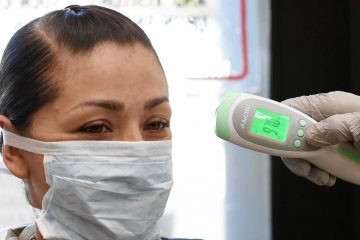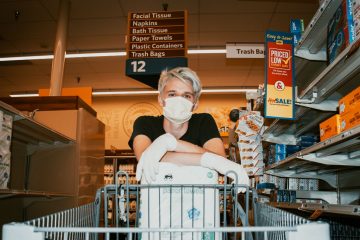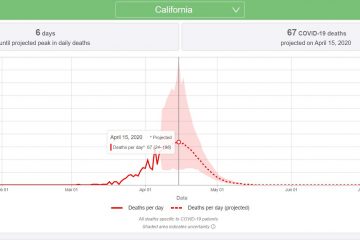A Bay Area Family Infected with Coronavirus Tells Harrowing Story
If you still think coronavirus is a distant threat, please read this story about a family who has been living with the virus since March 1st in the Bay Area. The reported number of Covid-19 cases in California as of March 18th was 869. But the actual number of infections is still unknown, and without a doubt much higher. One of the patients we interviewed was misdiagnosed and told she did not need to worry because she only had a ‘normal flu’, another was tested and simply never received his results back from the lab. Needless to say, testing for coronavirus is still very limited in the US, and this has caused the virus to spread exponentially.
A flight from Colorado (Not Wuhan)
I spoke with a husband and wife who are in self quarantine with their child in San Mateo County, after one of them officially tested positive for Covid-19 on Monday March 16th. This week, several passengers from her flight have tested positive for coronavirus as well. Their flight came from Colorado and landed at SFO on March 1st. Since March 1st, the infected passengers mostly conducted their lives normally, their children attended school with hundreds of other children, and some of the passengers who felt fine, simply went to work, and sent their children to school, they were unaware of their conditions.
One of these passengers, who had no flu like symptoms but was still a carrier, tragically infected their own parent with Covid-19. Their father passed away yesterday in hospital from pneumonia. Another passengers elderly parent is currently fighting for the life at an ICU on the peninsula, even with a dedicated respirator, doctors do not know if he will survive. Yet another passenger from that same flight gave their nanny the virus, who then brought it home to her child who as an immune deficiency disorder. This is very, very, serious, heartbreaking and only the beginning of this epidemic.
If you take anything away from this story, it should be that isolating yourselves and vulnerable people during this epidemic is imperative. Those who are older than age 60, or have weak immune systems or existing respiratory problems, need to be kept in absolute isolation. Many of those infected, have little to no symptoms, so right now, everyone must act as though they are already infected, and settle in place.
On March 3rd, one passenger’s symptoms consisted of a sore throat, low cough, and a bad headache. She called her doctor, described her symptoms, and the doctor told her she simply had the normal flu, and not to worry, she was prescribed Tamiflu (an anti-viral medication typically used to treat influenza) so that she could keep on working and being a mother. After all, she and her husband had a small business to run. The next morning she felt better, they both went to work, and that weekend the family went on a hike, attended a birthday party, and did typical family things.
Coronavirus Testing is still very limited
By Tuesday March 10th, the patient who was diagnosed as having a regular flu bug, and had felt better for several days, now began noticing relapsed symptoms. Added to that, her daughter and husband were now clearly sick as well. The mother and infant had sore throat, persistent cough, bad headache, diarrhea (but no fever in this case) and her husband’s symptoms were different, he mostly suffered from fatigue and mild cough. She went to her doctor to ask to be tested for coronavirus. Her doctor told her she didn’t need the test, and not to worry, she was told that she ‘just had a normal flu and wasn’t contagious’. But by now others who were on the same flight from Colorado were testing positive for Covid-19. She knew that in all likelihood her and her entire family were also positive carriers of the virus but had no way of officially confirming it.
The couple was forced to find a testing facility on their own, and after waiting in line in the parking lot, the couple again was rejected for testing. They were told that her medical record showed she was diagnosed with a normal flu, and therefore did not need a test. She had to insist, vigorously, that they test her anyway.
The couple had their throats and both nostrils swabbed, and their samples sent off to be tested for coronavirus. The wife’s test results came back positive for the virus several days later, while her husband’s test results never, arrived at all. He later went back to be tested again and is currently awaiting results.
Testing capability is very limited at this time so nearly all the testing sites will require that the patient meets Centers Of Disease Control and Prevention criteria:
- Exposure to someone with a confirmed case of the illness
- Older adults — 60 years or older
- People who have serious chronic medical conditions like: Heart disease, Diabetes, Lung disease
- Difficulty breathing or shortness of breath
- Persistent pain or pressure in the chest
- New confusion or inability to arouse
- Bluish lips or face
Here is a list of Testing sites in the Bay area.
What to do if you are sick: “call those you may have infected”
This particular group of infected passengers did the right thing after being alerted to their infection, they contacted hundreds of people and dozens of places that they have been in contact with and potentially exposed to coronavirus. Schools, nightlife venues, doctors offices, fitness centers, hairdressers, house cleaners, childcare providers, family members and friends, and anyone that they came in direct contact with over the last two weeks.
It is safe to say that this virus is here now, and our country simply does not have the testing capacity to identify all the cases currently out there. Those of us who are older than 60, or have weak immune systems or existing respiratory problems, need to be kept in absolute isolation. Many of those infected, have little to no symptoms, so right now everyone must act as though they are infected, and settle in place.
Conclusions
- Stay home whether you are sick or not. If you need to talk to someone outside your home, use the phone.
- Do not physically contact vulnerable populations (seniors or those with weak immune systems). You could literally be killing them.
- Know that the virus can live on surfaces such as plastics, metals, and your own hands for up to 3 days. So wash your hands for 20 seconds, often.
- If you deliver food, medicine and or supplies to vulnerable people, wipe them down with disinfectant, and leave them on the doorstep. DO NOT PHYSICALLY GO NEAR VULNERABLE PEOPLE.
- The virus can be easily spread through the air, primarily through coughing. That is why social distancing is imperative.
- If you are sick, contact your healthcare provider.
The US healthcare system does have enough respirators or hospital beds to treat all of our vulnerable citizens at the same time, so we have to slow this virus down together. Experts say that “without action by the government and individuals to slow the spread of coronavirus and suppress new cases, 2.2 million people in the United States could die.”
A parting thought by the couple we interviewed: “People are still treating this like a storm on the horizon, but the storm is already here, and we have the ability to turn the knob in the right direction. If people will listen, pause, slow down, and care for one another by isolating themselves frist. We have the power to slow this thing down and save lives, together.”







